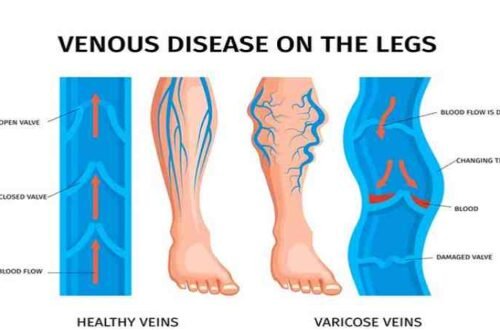Workplace accidents can be physically, emotionally, and financially devastating. Injured workers often face medical bills, time away from work, and a complex legal system that can be difficult to navigate alone. This is where a workers’ compensation lawyer, available at https://workerscompensationlawyerssandiego.com/, steps in to provide essential guidance and advocacy. Understanding the role of a workers’ compensation lawyer in workplace accident cases can make all the difference when seeking fair compensation.
Why You Need a Workers’ Compensation Lawyer
In the aftermath of a workplace injury, many employees assume that filing a workers’ compensation claim is a straightforward process. However, the reality is often far more complicated. Employers or insurance companies may dispute claims, minimize the extent of the injury, or deny compensation altogether. A workers’ compensation lawyer helps injured workers navigate these challenges, ensuring they receive the benefits they are entitled to under the law.
Protecting Your Rights
One of the primary roles of a workers’ compensation lawyer is to protect the rights of injured employees. Many workers may not be aware of all the benefits they are entitled to or may feel pressured by their employer or insurance company to settle for less than what they deserve. A lawyer ensures that your rights are respected and that the legal process is followed correctly.
- Fun Fact: In most states, workers’ compensation is a no-fault system, meaning employees can receive compensation even if they were partially responsible for the accident.
What a Workers’ Compensation Lawyer Does
As explained on the www.primelawyers.net website, a workers’ compensation lawyer serves as an advocate and guide through every stage of the claims process. From filing paperwork to representing you in court, their expertise can significantly increase the chances of a successful claim.
Initial Consultation and Case Evaluation
The first step in any workers’ compensation case is an initial consultation with a lawyer. During this meeting, the lawyer will review the details of your injury, assess the strength of your case, and explain the legal process. They will ask questions about the accident, your medical treatment, and the impact the injury has had on your ability to work.
- Pro Tip: Bring any medical records, incident reports, and correspondence with your employer or insurance company to your consultation. These documents will help your lawyer evaluate your case more accurately.
Filing the Workers’ Compensation Claim
Filing a workers’ compensation claim involves more than just completing paperwork. Some strict deadlines and procedures must be followed, and any errors can lead to delays or a denied claim. Your lawyer will ensure that all forms are filled out correctly and submitted on time, giving your case the best chance of moving forward without complications.
Gathering Medical Evidence
Medical evidence is a crucial component of any workers’ compensation case. A lawyer will work with your healthcare providers to obtain detailed medical records, expert testimony, and other documentation that supports the severity of your injury. This evidence helps establish the connection between the workplace accident and your injury, making it more difficult for the insurance company to dispute your claim.
- Did You Know? According to the U.S. Bureau of Labor Statistics, there were approximately 2.6 million non-fatal workplace injuries in the U.S. in 2021, with many resulting in workers’ compensation claims.
Negotiating with Insurance Companies
Insurance companies are often focused on minimizing payouts and may attempt to settle your claim for less than its actual value. Workers’ compensation lawyers are skilled negotiators who understand the tactics insurance companies use. They will negotiate on your behalf to secure a fair settlement that covers your medical expenses, lost wages, and any other benefits you are entitled to.
Contesting Claim Denials
If your workers’ compensation claim is denied, all hope is not lost. A lawyer can help you appeal the decision and continue fighting for your rights. Denials can happen for various reasons, such as lack of medical evidence, missed deadlines, or disputes over the cause of the injury. Your lawyer will review the denial letter, gather any additional evidence needed, and file an appeal to have the decision reconsidered.
Representation in Hearings and Trials
In some cases, workers’ compensation claims are not resolved through negotiation and may require a formal hearing or trial. Workers’ compensation hearings are similar to court trials but are usually held before an administrative law judge who specializes in these types of cases. Your lawyer will represent you during the hearing, presenting evidence, questioning witnesses, and making legal arguments on your behalf.
Preparing for a Hearing
Preparing for a workers’ compensation hearing involves collecting all relevant evidence, including medical records, accident reports, and witness testimony. Your lawyer will also prepare you for the hearing, explaining what to expect, how to answer questions, and what types of evidence will be presented.
- Pro Tip: Stay organized by keeping a detailed record of your medical appointments, expenses, and correspondence with your employer or insurance company. This information will be invaluable during the hearing.
Maximizing Compensation for Your Injuries
The goal of a workers’ compensation lawyer is to ensure that you receive all the benefits you are entitled to under the law. These benefits may include:
- Medical Expenses: Workers’ compensation covers the cost of medical treatment related to the injury, including doctor visits, surgeries, medications, and rehabilitation.
- Lost Wages: If your injury prevents you from working, you may be entitled to wage replacement benefits, typically a percentage of your pre-injury salary.
- Permanent Disability Benefits: If your injury results in a permanent disability, you may be eligible for ongoing compensation or a lump-sum settlement.
- Vocational Rehabilitation: In some cases, workers’ compensation may cover the cost of retraining or education if your injury prevents you from returning to your previous job.
- Fun Fact: Workers’ compensation benefits vary by state, but most states provide coverage for lost wages, medical treatment, and even job retraining for injured workers.
How a Workers’ Compensation Lawyer Adds Value
Having an experienced lawyer on your side greatly improves your chances of receiving fair compensation. Lawyers who specialize in workers’ compensation understand the nuances of the law, the strategies insurance companies use, and the evidence needed to win your case. They can also take the burden off your shoulders by handling all the legal details, allowing you to focus on recovering from your injury.
Reducing Stress
Navigating the workers’ compensation system can be overwhelming, especially when you’re dealing with the physical and emotional toll of a workplace injury. A lawyer can reduce this stress by managing the complex aspects of your case, from gathering evidence to negotiating with insurers. Knowing you have a dedicated advocate in your corner can provide peace of mind during a difficult time.
The role of a workers’ compensation lawyer is essential in workplace accident cases. They protect injured workers’ rights, handle the legal complexities of filing claims, and work tirelessly to ensure their clients receive the compensation they deserve. Whether you are dealing with a denied claim, struggling with medical bills, or facing an unsupportive employer, a workers’ compensation lawyer can provide the expertise and support needed to navigate the system successfully.
If you’ve been injured on the job, don’t face the legal challenges alone – consider consulting with a workers’ compensation lawyer who can help you understand your options and fight for your rights.





